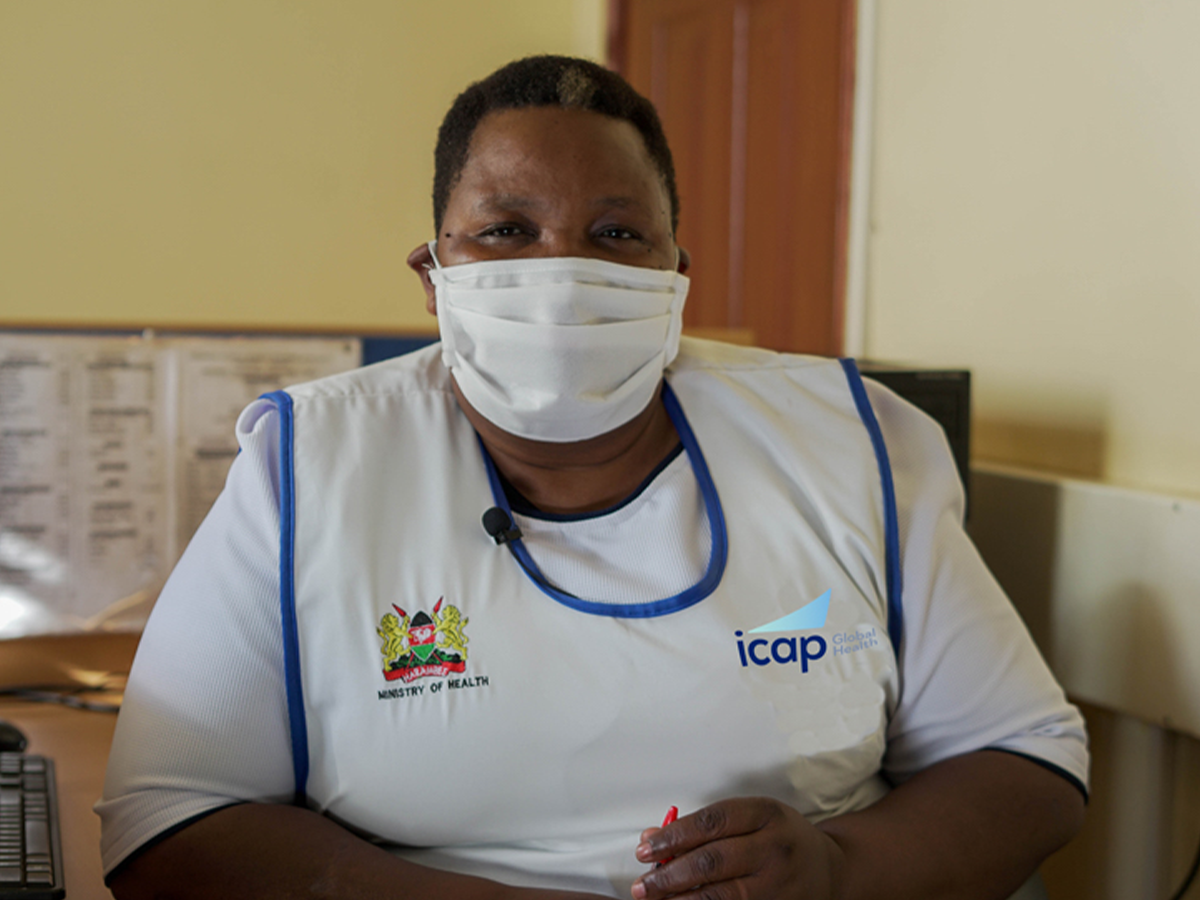A World AIDS Day Like No Other
For more than 30 years, the annual observation of World AIDS Day on December 1 has given the global community an opportunity to pause and collectively reflect on the HIV pandemic – celebrating the strides we have made and sharpening our focus on the challenges still ahead.
But this year’s World AIDS Day stands apart from all others. The COVID-19 pandemic has cast our ongoing response to HIV in a new light, placing dramatic new hurdles before us and testing our resolve in an already daunting struggle.
When the SARS-CoV-2 virus began its spread around the world early this year, we at ICAP became immediately concerned about the impact of this new epidemic on the lives of millions of people in the countries where we work, while at the same time fearing how it might threaten the many hard-won gains achieved or slow the momentum towards HIV epidemic control.
Building on nearly two decades of experience and partnership, we rapidly mobilized to support countries in Africa, Asia, and the Americas to prepare and respond to the new pandemic, while bolstering their ability to maintain the progress they had made in providing HIV prevention, care and treatment to their communities.
In the past months, since the start of the COVID-19 pandemic, with support from CDC as well as private funders, ICAP has managed to help numerous resource-challenged countries build firewalls against the dual pandemics to protect the health of their populations.
In close collaboration with ministries of health from Angola to Zimbabwe, ICAP teams worked to support the setting up of national command centers and data dashboards, and introduced innovative virtual approaches to maintaining strong health services in the face of the dramatic challenges presented by the pandemic.
Training programs were launched in more than two dozen countries and, to date, nearly 5,000 health care workers have been trained in critical skills for the diagnosis and management of COVID-19 as well as in infection prevention control measures. ICAP also provided hundreds of thousands of masks, gloves, face shields, and other protective equipment for health workers in more than a dozen countries and distributed medical diagnostic and treatment devices to health facilities across Africa and Asia.
Reaching directly into communities, ICAP launched mobile health brigades to bring critical information and services closer to people. It also commissioned an urgent call through a compelling song by renowned Zimbabwean musicians Albert Nyathi and Dereck Mpofu – “Apart/Together – We Stand Strong Against COVID” – to encourage communities to follow public health guidelines and to do what they can to combat the pandemic.
Against this backdrop, ICAP teams have continued to advance key programs to secure access to antiretroviral treatment, taking advantage of innovations such as multi-month dispensing, community ART refill groups, community distribution centers and other novel differentiated service delivery models to help ensure the safety and well-being of recipients of care.
The good news is that, even as countries struggle with the coronavirus pandemic, we are seeing notable gains made against HIV. Measurement of this progress comes from the release of key data from the Population-based HIV Impact Assessment (PHIA) Project, which is funded by the US President’s Emergency Plan for AIDS Relief (PEPFAR) through the US Centers for Disease Control and Prevention (CDC) with technical support from ICAP.
On this World AIDS Day, adding to nine previously released PHIA surveys, preliminary findings from the 2020 Zimbabwe survey shows continued progress in that country’s efforts in confronting its HIV epidemic. Additionally, the findings from the Lesotho’s 2020 survey will be shortly available. At the same time, the field work for the Haiti PHIA survey was successfully recently accomplished, while work continues to complete new PHIA surveys in Malawi and Uganda and to launch a third PHIA survey in Eswatini and a first-time PHIA survey in Mozambique.
While this progress is encouraging, much remains to be done. We continue to note perilous gaps in HIV prevention and treatment, particularly for children, adolescents and young people, men and key populations. Many barriers to engagement and access persist, including stigma and discrimination and limited prevention and treatment literacy. Most critical is the need for genuine engagement of disenfranchised populations and recipients of care. These gaps compel us to look forward with focus, determination, commitment, and compassion as we work towards a world without AIDS.
This year’s World AIDS Day theme – as declared by UNAIDS – is Global Solidarity and Shared Responsibility. This theme could not be more apt for this moment in history. The keys to solving the crisis of HIV — with which too much of the world has lived with for far too long – have always been these very things. The COVID-19 pandemic provides a potent reminder that, to solve a pandemic, the world must act in concert. We must trust in science and evidenced-based practices. We must cling zealously to hard-won gains and continue to move forward with innovation and ingenuity to overcome the two pandemics, HIV and COVID-19. And, above all, we must remember that, where global health is concerned, we are all in this together.

Wafaa El-Sadr, MD, MPH, MPA
Founder and Global Director, ICAP at Columbia University
University Professor of Epidemiology and Medicine
Mathilde Krim-amfAR Chair of Global Health








